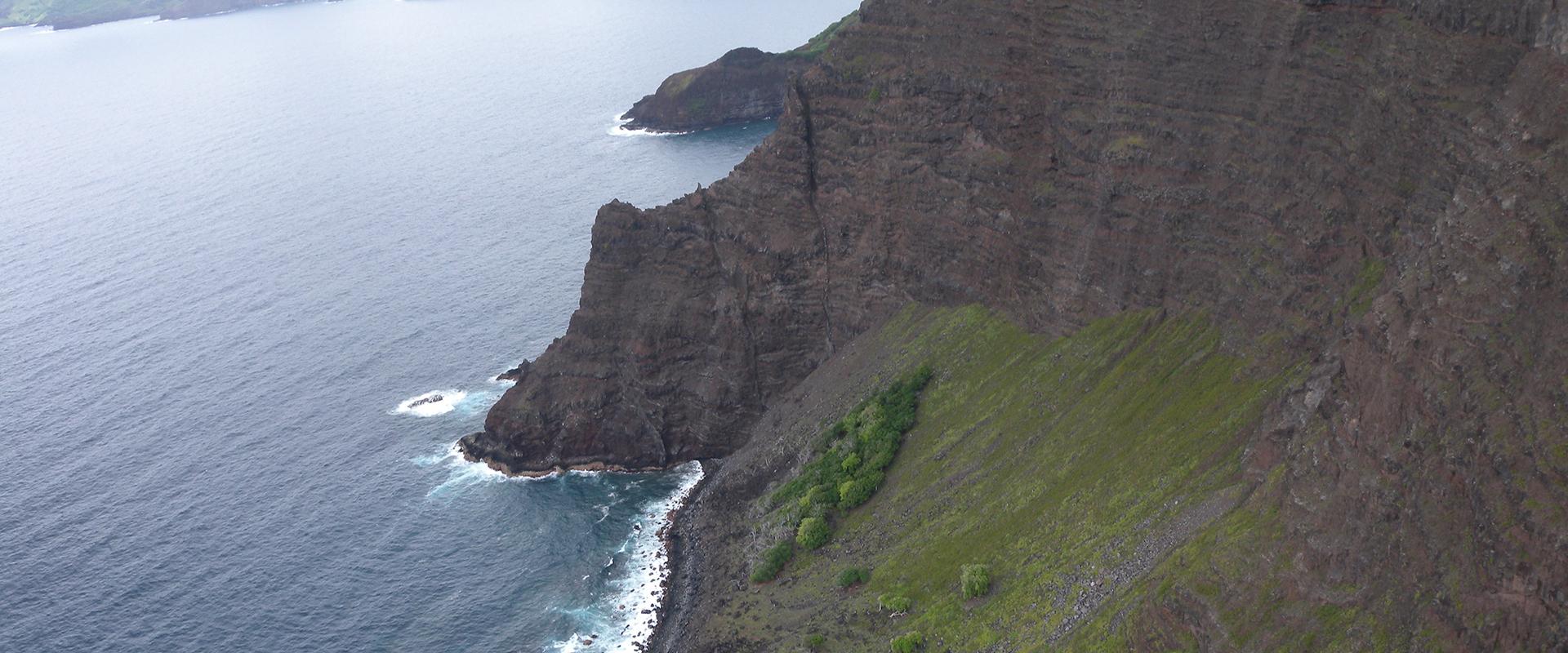Prevention of natural risks in French Polynesia: flooding
Transcription
HOW TO BE PREPARED IN CASE OF RAINFALL?
The rainfall in Polynesia is very high, the phenomenon is exceptional. Care is needed.
Always consult the weather bulletins on TV, on radio and Internet, as well as the warnings broadcast during bad weather. Avoid traveling, and in the event of an emergency, take the suggested diversions. There is a risk of sewers overflowing and of mudslides. Major road traffic disturbances are possible. Power cuts may occur. Never venture on foot or by vehicle onto a submerged thoroughfare. Watch out for rising waters. Stay away from watercourses, and don't go hiking. Keep the children at home and if instructed to do so, evacuate your home and go to the shelters indicated by your town hall.
In case of rainfall, the risks are very real, but if you are well prepared, the worst can be avoided.
Prevention of natural risks in French Polynesia: landslides
Transcription
HOW TO BE PREPARED IN CASE OF LANDSLIDES?
A new rainy season strikes Polynesia. Precipitation will intensify in the coming days. So be prepared. Be careful.
Check weather information on TV, radio or Internet and the warnings issued during bad weather. Beware of potential landslides. To that end, observe the condition of slopes up to the top and watch out for running water. If you witness a landslide, alert emergency services and do not venture into the risk zone.
In case of landslides, the risks are very real but if you are well prepared, the worst can be avoided.
Prevention of natural risks in French Polynesia: cyclones
Transcription
How to prepare IN THE EVENT OF A HURRICANE
At the start of hurricane season, you must prepare. You should stock up on food supplies, reserves of drinking water, tools that can be used after the hurricane, a first-aid kit, a torch and a portable radio with spare batteries. The hurricane's coming. Orange Alert has been issued. Go home, to avoid damage in the house, or go to a hurricane shelter. You must reinforce exits, put away objects that could fly off. Listen to messages broadcast on radio and television. The hurricane's almost here. Red alert has just been issued. Our journalist is at the crisis management centre. Now you must extinguish flames, turn off the gas, bring your animals in. All you have to do now is wait.
Stay in the safest part of the house, keep a torch close at hand and do not leave your shelter. Wait for the radio to give the end of the alert and say you can move.
In a hurricane, the risks are real, but if you're well prepared, you can avoid the worst.
Prevention of natural risks in French Polynesia: tsunami
Transcription
Good evening. Thousands of Chileans were abruptly awoken by a violent earthquake measuring 8.8 on the Richter scale, one of the worst to ever strike the country.
When an earthquake strikes in the Pacific, the Tahiti geophysical laboratory can determine whether or not there is a risk of a tsunami.
If the risk is confirmed, the alert is given by sirens present in each commune. An alert sounds three times a minute.
Radios and televisions interrupt programs to give information.
You have between 1 and 10 hours to get organized. Prepare one piece of luggage. Pack food, documents and any important drugs.
Calmly walk to the planned refuge area and stay tuned for information.
If you are on the west coast of Tahiti or protected by a lagoon, just go up to a height of 3 m.
In the Tuamotu, find a high spot.
The east coast will be hardest hit, at Rurutu and in the bays from Moorea and Huahine.
Climb, then, to a height of 10 m.
In the Marquesas, climb to 20 m.
Stay tuned to the radio for an end-of-alert announcement. A tsunami has several waves.
A 30-second blast signals the end of the alert. An immediate evacuation means moving away from the coast and uphill without delay.
In case of tsunamis, the risks are very real, but if you are well prepared, the worst can be avoided.








This video is part of the information campaign carried out as part of the natural risk prevention programme in French Polynesia. The ARAI (natural hazards and risks, spatial planning and information) programme is built on a partnership between the French government, the Overseas Collectivity (COM) of French Polynesia and BRGM (French Polynesia, 2011).